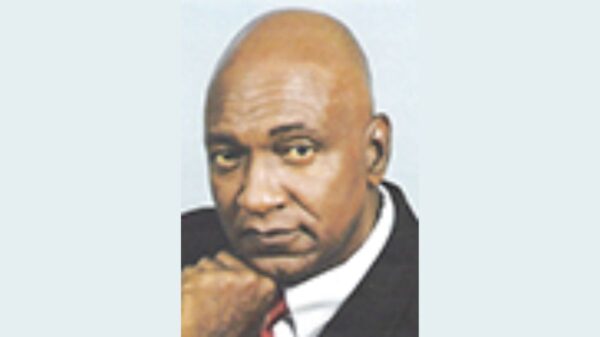By Marc Morial
“We’ve had to believe in something beyond what was readily available to us. We were always aware of our dignity, always aware of our worth, always aware of those things for our children and our community. We couldn’t just accept what we were being told. So we push the country forward until they see things the way we do. It’s a political moment when you become a Black mother. There is something very politicizing about not only fighting for your own life, but for a life you hold dearer than your own.” — Anna Malaika Tubbs
Credit: facebook
It’s always a blessing when my duties as president and CEO of the National Urban League take me to my hometown of New Orleans, as happened last week with a milestone celebration of one of our economic empowerment initiatives, and a professional development conference for our hard-working affiliate CEOS.
And the greatest blessing of being at home is spending time with my mother, Sybil Haydel Morial, an educator and civil rights activist who has shaped not only the lives of my siblings and myself, but of countless others – not only in New Orleans, but across the nation.
It was my privilege on this trip to accompany my mother to dinner at the legendary Dookie Chase’s restaurant.
There, we were joined by three other children of the movement : Leona Tate, Tessie Prevost and Gail Etienne, whose own mothers and fathers, along with the parents of Ruby Bridges, made the unimaginably courageous decision to desegregate New Orleans public schools in 1960.
It was a stark reminder, just in time for Mother’s Day, of the role that my mother and the other women of her generation have played in the ongoing struggle for racial justice.
Born 67 years after the Emancipation Proclamation, my mother was the great-grand- daughter of Victor Haydel, who was enslaved on the Whitney Plantation, in St. John the Baptist Parish, Louisiana. As the daughter of a Black physician growing up under American apartheid, my mother experienced a childhood that was uniquely privileged and oppressed.
For example, she and her sister Jean frequently accompanied their mother to opera performances at the New Orleans Municipal Auditorium in the 1940s. But what she remembers most about those outings is not the beautiful music and costumes but the 103 steps they had to climb to the colored section of the auditorium.
“When we reached the top, we bent over in exhaustion,” she wrote. “Mother paused at every landing, and when she reached the top, she, too, was crippled from exhaustion — and anger, which faded only when the opera began.”
She began her teaching career in Newton, Massachusetts, intending to earn her master’s degree at Boston University where she had completed her undergraduate studies.
But in 1954, the U.S. Supreme Court ruled in Brown v. Board of Education of Topeka that racial segregation in public schools was unconstitutional.
“We talked about leaving the freedom of the North to return home and become involved in the changes,” she wrote. “I don’t think any of us knew exactly what that would entail, but we were determined.
“A large wall that had surrounded us all of our lives now had a good-sized chink in it, and we could envision it, like the walls of Jericho, tumbling down.”
In 1955, while my father, Ernest “Dutch” Morial, completed his military service at Holabird in Maryland, my mother was one of the first Black teachers assigned to integrate the faculty of Maryland’s public schools.
Upon their return to New Orleans, my parents became deeply involved in the civil rights movement. As someone who had been turned away from registering to vote because she “failed” the test of identifying her own eye color, my mother devoted herself to preparing other Black citizens to register. it is humbling, and often terrifying, to recall the extraordinary challenges my mother faced – from dismissal from her teaching job due to her membership in the NAACP and the Urban League to actual death threats.
On this Mother’s Day, I celebrated her courage and thank the other mothers who have shaped the direction of racial justice and equality – from Leah Chase, whose restaurant was a safe haven for civil rights workers like my parents… to my wife Michelle Miller, whose work as a journalist has earned numerous awards … to the many women of excellence who lead our Urban League affiliates throughout the country.
Marc Morial is president/CEO of the National Urban League.

You must be logged in to post a comment Login